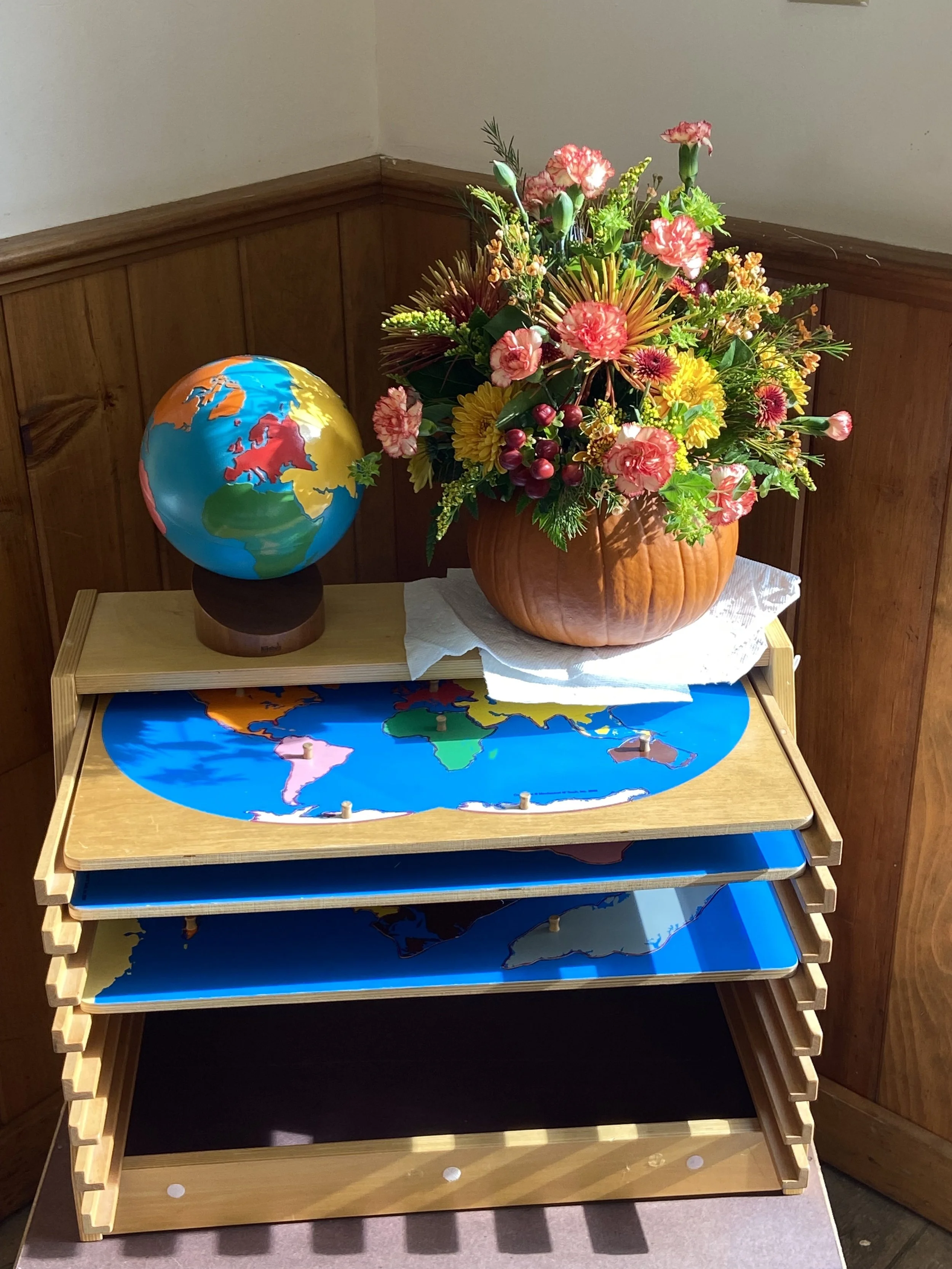Culture and Science
Culture refers to a curriculum which aims to help children develop a creative and constructive relationship with the world. The approach is hands-on and developmentally appropriate, starting with a big picture view and then narrowing in on details:
Globes - Children begin with globes that have sandpaper or colorful continents.
Maps - Children use puzzle maps that use the same colors they learned on the globes. They can also learn to place pins in maps to see where places are in relation to the world.
Physical geography - Children learn about Earth's environment, including geology, which is based on real information they can see and touch.
Political geography - Children learn about countries and their borders, as well as how humans have adapted to the land. They can also learn about different cultures and history by learning about the flags of different countries.
Other activities - Children can use an Earth playdoh mat to fill in landmasses, which helps develop spatial awareness. They can also create continent boxes to explore different places further.
Science – a child-centered approach to science education that encourages children to explore the world through their senses and develop a lifelong interest in nature. It's based on the idea that children are natural scientists and values a multi-sensory approach to learning. Cosmic Education is a cornerstone of the Montessori Philosophy. It tells the story of how all things are connected. It describes the role of education as comprehensive, holistic and purposeful; to encompass the development of the whole person within the context of the universe.

